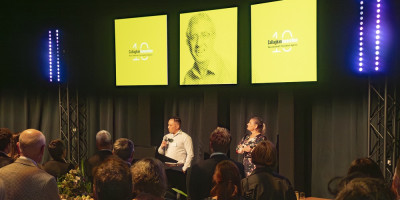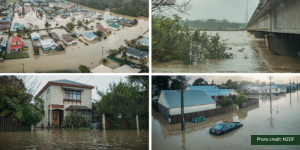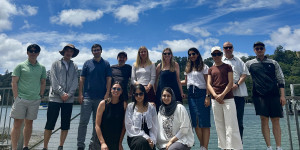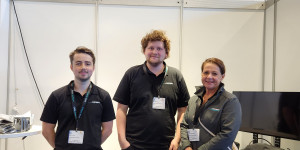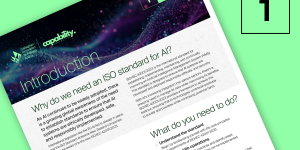Resources
Job boards
There are a number of other sites and job boards dedicated to university talent and internships:
- NZUni Talent - The collaborative job board between eight NZ Universities.
- Summer of Tech - Tech internship programme and job board.
- Industry Ready - Engineering internship programme and job board.
Frequently asked questions
Yes. This will give you more time to advertise your role and find a student that’s a good fit for your business.
We’d kindly ask that you only apply for a grant if you’re confident that you’ll fill the associated role. Unclaimed grants result in other businesses missing out, and students not getting opportunities.
Note: for Career Grants, you must find the student/graduate before you apply.
This means that the business must have:
- an in-house R&D programme
- a recent history of R&D activities over the preceding year and an R&D plan for the upcoming year; and
- a minimum of one R&D full time equivalent (FTE) employed by the business.
See our guide to describing your R&D.
Depending on the size and capability of its R&D team, a business may receive multiple R&D Experience Grants at one time (up to a maximum of 10 students).
Read our guide on the number of students per business for more information.
Two current R&D Full Time Equivalent (FTE) staff are required for each student supported by a Callaghan Innovation grant and this 2:1 ratio applies regardless of the type of grant (Fellowship Grant, Career Grant or Experience Grant). The exception is when the business has only one R&D FTE - in this case one student can be applied for.
If a business currently has the maximum number of students but has a Callaghan Innovation student grant that will be completed before 1 December 2024, they may apply for an R&D Experience Grant to begin after the other grant ends. For example, if a business has 1 or 2 R&D FTE and already has an R&D Career Grant that will end on 31 October, we will allow approval of 1 R&D Experience Grant with a start date on 1 November.
International students studying in New Zealand may be eligible provided they have a valid visa allowing the student to work in New Zealand for the duration of the internship.
The business is responsible for ensuring that the student can legally work in New Zealand before they start work.
A company may employ the same student twice under Experience Grants Internships but not a third time. The student must not have been previously employed at the business unless part-time or temporary.
If circumstances change it is very important that you advise us. We’ll consider the impact of the changes on the grant criteria and discuss these with you.
Experience Grant students must work full-time at the business for the duration of the placement. Students must work in the business, not in a university or at home, as the key to these grants is giving students exposure to a working R&D environment.
There is some flexibility here for digital businesses where core staff are generally working from home. Requests for a student to be working remotely are assessed on a case by case basis and the business will need to demonstrate how the student will receive adequate oversight, mentorship and exposure to a real-world R&D environment if not working on site.
The Callaghan Innovation contract start dates will be determined as part of the contracting process and cannot be earlier than the date of approval. All contracts will have a start date no earlier than 1 July 2024.
The start date for the student’s employment should usually not be after 1 December 2024 to allow sufficient time for the student to complete the 10 week internship before 31 March 2025 after allowing for a possible Christmas shutdown.
If there is an exceptional circumstance that would mean you would prefer a later start date for your student, talk to us and we will assess your request.
Standard term of the contract is from either 1 July 2024 or the date of approval (if approved after 1 July 2024) until 31 March 2025.
For 2024/2025, the funding amount (excl GST) per student is $11,120 which is based on 40 hours per week for 10 weeks at $27.80 per hour. One claim is made at the end of the contract period.
The business is the primary contact, however, the student may also contact us at any time to discuss issues related to the grant and/or the project.
Applications need to be submitted in the portal by a “super user”. All other users are unable to view or use the “Submit” function.
There is no waitlist in place for Experience grants.
There is no rule that prevents several businesses within a group from applying for a Career Grant or an Experience Grant. However, each business entity within the group must apply separately for the student they are employing, along with signing separate funding agreements.
When submitting a final report and claim, each business entity will need to raise separate reports and payslips that demonstrate the student was paid by the business entity.
For R&D Experience grants one final report and claim per contact is submitted at the end of the employment period.
From time to time, we may require the business and student to complete a survey after the completion of the grant. This survey helps to inform the design of future R&D grants.
No. All students must be PAYE employees for the duration of the grant.
The student must directly contribute to the company’s R&D project but does not need to be doing R&D activities. Engineering, technology and science students are often directly involved in a company’s R&D project whereas design and business students may not be. An example is a design student using focus groups to identify customers’ unmet needs, and another example is a business student analysing the market to determine the value of product attributes to a range of market sectors. In these examples the students are not doing core R&D activities, but they are directly contributing to the company’s R&D project.
No. You may request support for multiple students within a single application. Requesting support for multiple students within a single application (rather than submitting multiple applications) is preferred for ease of administration.
Businesses often propose one project per student; however, it is acceptable to propose multiple students working on a single project, or multiple projects per student provided there is adequate oversight and mentoring for all students on the same project. For all proposed projects, the student must participate in a defined R&D project within your business that exposes them to technical work that is relevant to their degree or diploma.
Callaghan Innovation has a robust set of policies and procedures on confidentiality and privacy to protect information provided by grant applicants from being shared with unauthorised third parties. We are a New Zealand Government agency and the guidelines published in Maintaining Confidentiality of Government Information on the Public Service Commission website also apply.
We are however subject to the Official Information Act 1982 and we are obliged to disclose information under that Act if requested to do so and provided there are no grounds under that Act to withhold the information. When sharing your information under an OIA request we will take reasonable steps to endeavour to protect your personal, confidential and/or commercially sensitive information, including where necessary, de-identifying and/or redacting information that is not necessary to share to meet our obligations.
If you’ve applied for an R&D Experience Grant in the past, or have previously received other funding from Callaghan Innovation, you can start your application in our online Grants Portal, IMS, when the funding round is open. If you’re new to R&D Experience Grants, please contact our Customer Support team.
You can submit questions to us using the form found here.

Ready to transform your business?
Start your application today!
If you’re new to R&D Experience Grants, please contact our Customer Support team.







